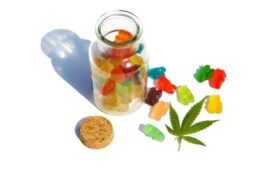Have you ever wondered if your toothbrush was doing its job? Even if you brush and floss twice a day, as recommended by your dentist in Shelby Charter Township, the battle against bacteria can be hampered by an unclean toothbrush. It’s not necessary for your toothbrush to have visible grime on it for it to be unclean. Over a million little bacteria can live in just one toothbrush.
Fixing this issue is as simple as cleaning your toothbrush and replacing it when it gets worn. Consider these options if you want a cleaner toothbrush and better oral hygiene.
PROPERLY WASH AND DRY
You can help your toothbrush stay clean by following some simple maintenance steps. Rinse your toothbrush with hot water after each use. If you want to ensure that your toothbrush is clean, you can agitate the bristles in cold water to eliminate any leftover paste or dirt. If your toothbrush gets wet, let it air dry before putting it back into its case. Let your toothbrush air dry to prevent germ growth between uses.
PURGE AND CLEAN WITH SOLUTION
If your toothbrush needs a more thorough cleaning, you can disinfect it in liquid. To do this, simply wet your toothbrush and dip it into one teaspoon of peroxide solution in one cup of water. An alternative is to use an antimicrobial mouthwash to swish your toothbrush in. Soak the toothbrush in the solution for at least 30 seconds, then take it out, rinse it, and let it dry in the air.
SANITIZE WITH UV RAYS
The use of UV sanitizers to maintain a sanitary toothbrush is becoming more commonplace. These handy gadgets emit UV light to disinfect your toothbrush electronically. UV sanitizers kill 99.9% of germs on contact. However, some critics point out that they may shorten the life of your toothbrush.
It’s important to replace your toothbrush regularly.
There comes the point when even the most meticulously maintained toothbrush loses its effectiveness. Brushes with worn-out bristles can only remove plaque as frequently as newer brushes. Brushes should be replaced every three to four months to ensure clean, functional bristles.
NEVER SHARE TOOTHBRUSHES
Sharing food, drink, and utensils with loved ones is great, but using the same toothbrush on multiple people is not a good idea. Using someone else’s toothbrush is not healthy, so experts advise against it. When you use a toothbrush with someone whose gums bleed after brushing, you risk being exposed to more than just saliva and maybe, disease.
















